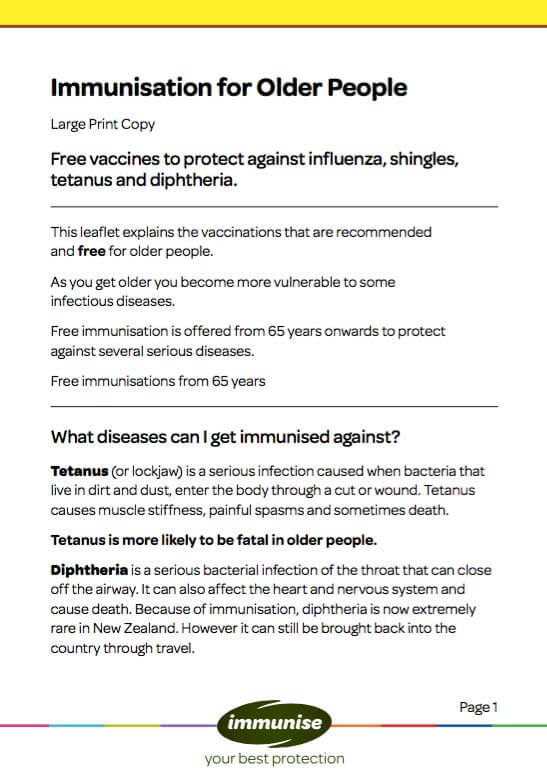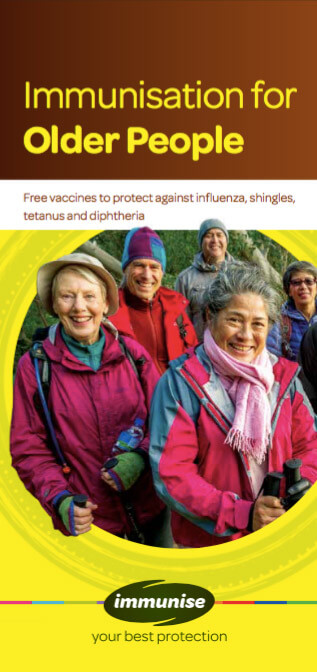Immunisation involves receiving a vaccine to help your body's immune system protect you against a disease. Read more about how your immune system works.
The following vaccines are free for adults in Aotearoa New Zealand
- Flu vaccine: Every winter from age 65 years. The flu vaccine is also free for some people with certain medical conditions.
- Shingles vaccine: 2 doses at age 65 years or for people who are 18 years of age and over and who have health conditions that increase their risk of shingles.
- Tetanus vaccine: From 45 years (if you haven't already received 4 doses of tetanus-containing vaccine) and 65 years for anyone else.
- Measles vaccine (MMR): Anyone born on/after 1 January 1969 who hasn't had 2 doses of the MMR vaccine should have the MMR vaccine.
- COVID vaccines: Adults over 16 years of age are eligible for 2 doses of COVID-19 vaccine and a booster. If you're over 30 years of age, you’re eligible for a booster every six months after your last COVID-19 vaccine or COVID-19 infection.
Note: Other vaccines are funded for adults at high risk of some diseases due to other medical conditions. For more details see funded vaccines for special groups (external link)and vaccinations in pregnancy.
The following vaccines are available but not funded for adults in Aotearoa New Zealand
- Pneumococcal vaccine: One dose for adults 65 years of age and over.
- Respiratory syncytial virus (RSV) vaccine: For adults over 60 years of age the Arexvy® vaccine is available.
Read more about these vaccines in the sections below.








